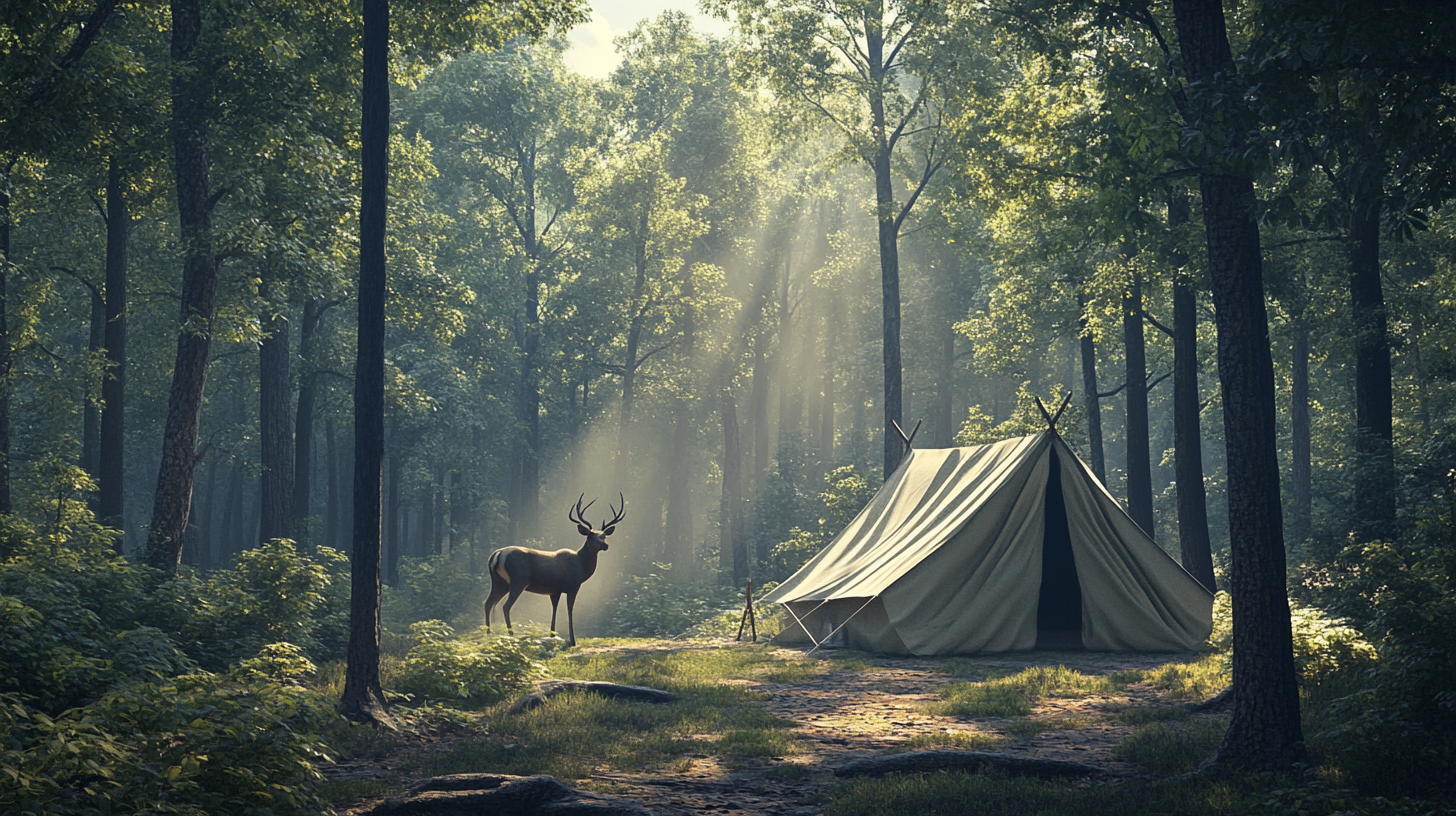Ensuring Safe Camping: 7 Tips for Respecting Wildlife and Nature in the Outdoors
Hello nature loving campers! 🌲
Imagine this: you’ve just set up your campsite and drifted off to sleep on a cool fall evening. Sounds like heaven, right? Then you wake up to the gentle rustling of leaves, followed by a can rattling, some grunting, and a heavy thud. Yikes! Not what anyone wants to hear outside their tent! 😱
Camping in the great outdoors is an unmatched experience, letting you reconnect with nature and escape the everyday hustle and bustle. But remember, you’re sharing this beautiful environment with its original inhabitants – the wildlife. To keep everyone safe, here’s your friendly guide to camping safely around wildlife:
1. Educate Yourself Beforehand
- Research the local critters in your camping area. Knowing their habits, behaviors, and potential dangers helps you prepare and react appropriately if you encounter them.
2. Keep a Respectful Distance
- It’s thrilling to see wildlife up close, but remember, they aren’t pets. Use binoculars or a zoom lens to observe them without disturbing their natural behavior. Approaching wild animals too closely can stress them out, leading to defensive behaviors.
3. Store Your Food Properly
- Secure your food! Animals have an incredible sense of smell and will seek out food sources. Use bear-resistant containers or hang your food high in a tree using the proper method. Keeping a clean campsite free of food scraps is crucial in deterring unwanted visitors.
4. Dispose of Waste Responsibly
- Animals can be attracted to the smell of waste just like us. Follow Leave No Trace principles: pack out everything you bring in, including food wrappers and toilet paper. This helps maintain the ecosystem and prevents wildlife from ingesting harmful materials.
5. Avoid Feeding Wildlife
- It might be tempting, but feeding wildlife is harmful to their health and safety. Human food can make them sick and alter their natural behaviors. Remember, a fed animal can become a danger to humans over time.
6. Make Noise While Hiking
- In areas with dense vegetation or limited visibility, make some noise to alert wildlife of your presence. Most animals will naturally avoid humans if they know you’re coming. Simple conversation with your hiking companions will do the trick.
7. Respect Nesting and Breeding Areas
- During nesting or breeding seasons, it’s crucial to avoid disturbing wildlife habitats. Stay on designated trails, follow posted guidelines, and be mindful of signs indicating these sensitive areas.
Camping in the wilderness is a fantastic way to unwind and connect with nature. By following these simple guidelines, you can ensure a safe and harmonious experience for both you and the wildlife that calls the outdoors home. Remember, the key is respect – for the animals, their environment, and our shared responsibility in preserving it for future generations. So gear up, stay informed, stay safe, and enjoy your camping adventure while treading lightly.
Stay wild and wander often!



